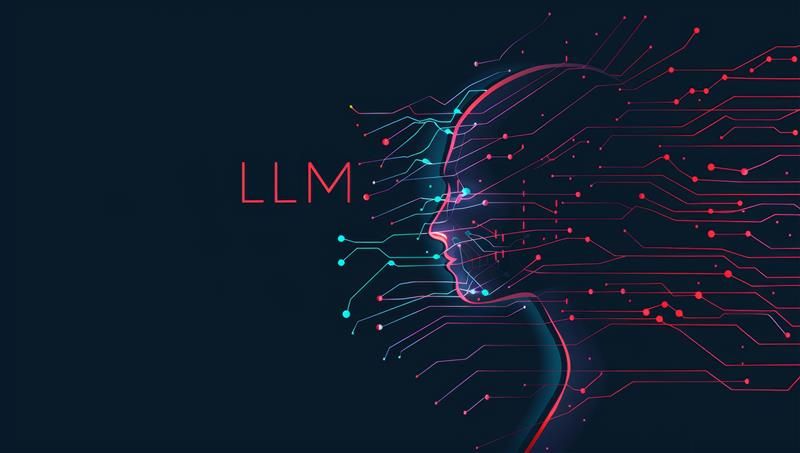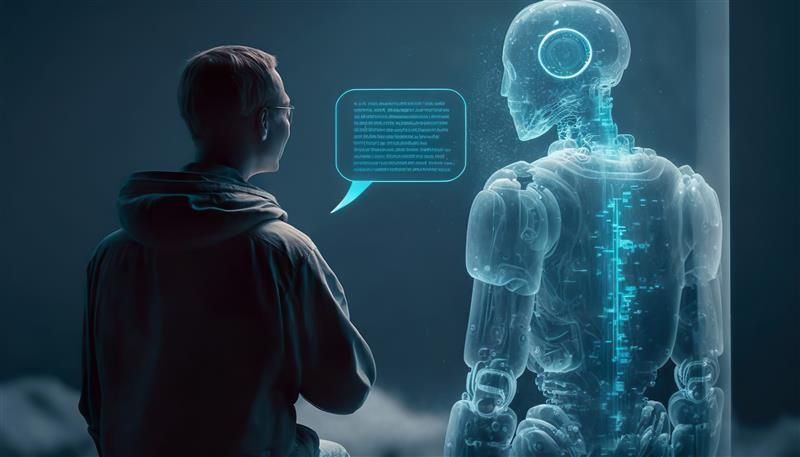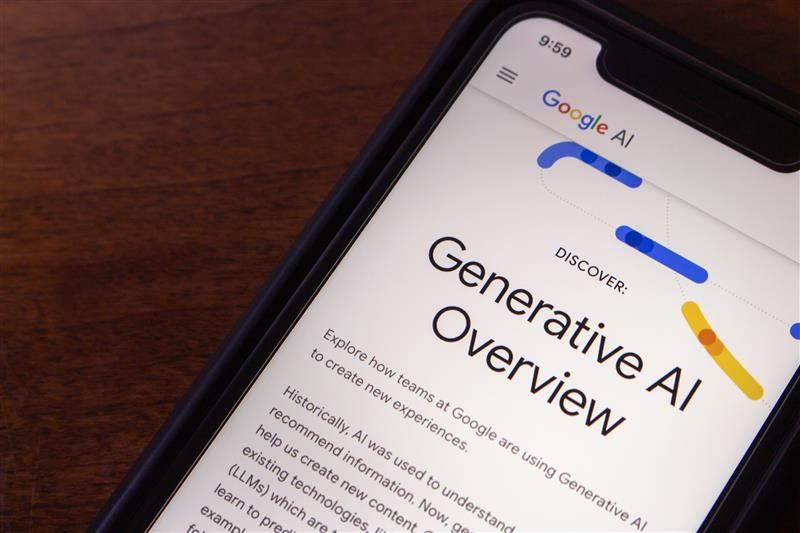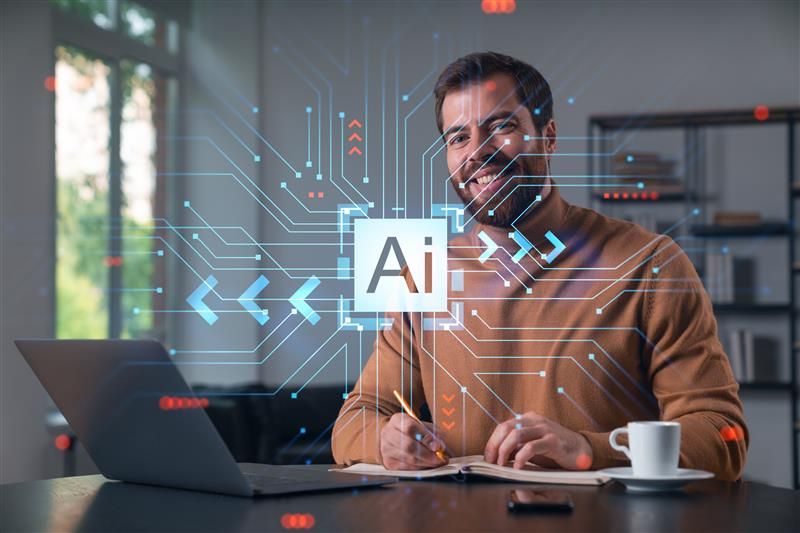In the rapidly evolving world of Consumer Packaged Goods (CPG), the adoption of Artificial Intelligence (AI) has become a game-changer. Did you know that the global AI market in the CPG sector is expected to grow at a CAGR of over 35% between 2021 and 2028? AI is transforming everything from supply chain management to marketing personalization, creating new opportunities for CPG brands to stay ahead of the competition. The sheer power of AI lies in its ability to analyze massive amounts of data and extract valuable insights, which were previously unattainable with traditional methods. By automating repetitive processes and delivering enhanced predictive capabilities, AI empowers CPG companies to improve efficiency, reduce costs, and provide a better overall customer experience.
AI is capable of processing consumer data on an unprecedented scale, identifying subtle trends, and predicting shifts in consumer behavior. With such insights, companies can not only react to current market demands but also anticipate future ones. The competitive advantage this brings is significant, allowing companies to proactively shape consumer preferences rather than merely react to them. In a landscape where consumer loyalty can be fleeting, adopting AI means staying ahead of the curve, continuously innovating, and delivering what the customer desires even before they realize it. Let's dive into how AI solutions for CPG are revolutionizing the industry and why companies that fail to adapt risk being left behind.
What is the CPG Industry?
The Consumer Packaged Goods industry is all about products that people use on a daily basis. Think about the items in your pantry or bathroom—those are CPG products. These goods are generally low-cost and are sold quickly, often in high volume. Given their nature, companies in this space need to stay agile and innovative, and AI is helping them do just that. With increased access to data and smarter technology, companies can now better predict what products consumers will need and when, giving them a significant competitive advantage.
Role of AI in Modern Business
AI isn’t just for tech companies anymore. It has made its way into almost every business sector, and its impact is profound. For the CPG industry, AI is a powerful tool for forecasting demand, understanding consumer behavior, and optimizing business processes. From predicting the success of a new product launch to analyzing shopper sentiment, AI provides insights that were previously unattainable. But the real magic of AI lies in how it can turn raw data into meaningful insights that help companies stay ahead of the competition and adapt to changing market dynamics quickly and efficiently.
Facts About the CPG Industry
- The CPG market is valued at over $2 trillion globally.
- Consumers are demanding more personalized products and experiences.
- Over 60% of CPG companies are currently investing in AI to enhance efficiency and drive growth.
- The demand for healthier, sustainable products is driving innovation, and AI is helping companies respond faster to these shifts.
The Importance of AI in CPG
Enhancing Efficiency
AI helps CPG companies optimize various processes, from production to distribution. For example, AI can predict the best times for production runs to minimize costs and reduce waste, helping manufacturers save both money and resources. In addition to optimizing production schedules, AI can also help automate quality checks, reducing the risk of errors and ensuring a consistent product quality across the board.
Data-Driven Decision Making
AI empowers CPG companies to make decisions based on data rather than intuition. By analyzing past sales data, consumer feedback, and even social media trends, AI provides actionable insights that can improve decision-making at all levels. For example, AI can analyze real-time data to predict which products will perform well in a particular region, allowing companies to allocate resources effectively and avoid stockouts or overstocks.
AI in CPG Industry: An Overview
Understanding AI in Consumer Goods
At its core, AI in the CPG industry is about using machine learning and data analytics to make more informed decisions. AI can sift through enormous volumes of data to find patterns that would be impossible for humans to detect on their own. For instance, AI can analyze consumer purchasing habits and identify trends that might indicate a shift in preferences, such as an increased interest in organic or sustainably sourced products.
AI-Driven Insights
AI offers insights that help CPG companies tailor their marketing strategies, improve product quality, and streamline supply chains. This kind of precision can make a significant difference in a highly competitive market. AI can also analyze customer sentiment, providing insights into how consumers perceive a brand or product, which can help refine marketing campaigns for better engagement.
AI in Retail and CPG
AI for Personalized Customer Experience
Have you ever noticed how some brands just seem to know exactly what you need? That’s AI at work. By analyzing consumer preferences, browsing habits, and purchase history, AI creates personalized experiences that make consumers feel valued. This kind of personalization can make the difference between a one-time buyer and a loyal customer. Personalized product recommendations, targeted promotions, and even personalized packaging are all possible through AI, helping brands build deeper relationships with their consumers.
AI and Inventory Management
Inventory management is one of the trickiest parts of the CPG business. Overstock and understock can both lead to losses. AI, however, uses predictive analytics to optimize inventory, ensuring that the right products are available at the right time. By accurately forecasting demand, AI helps minimize excess inventory and ensures that companies can respond quickly to market changes, ultimately improving their bottom line.
AI in Supply Chain Optimization
AI can significantly improve supply chain efficiency. With AI, companies can predict delays, optimize routes, and even foresee demand spikes. This not only helps in reducing costs but also ensures that products reach the shelves faster. Moreover, AI can help identify weak points in the supply chain, such as bottlenecks or inefficiencies, and recommend corrective actions. This kind of proactive approach ensures that disruptions are minimized, and customers receive their products without delays.
AI in Consumer Goods Industry
Predictive Analytics in Consumer Goods
One of the most exciting uses of AI in the CPG industry is predictive analytics. Imagine being able to predict which products are going to be in high demand next month—AI makes that possible. By analyzing market trends, consumer behavior, and historical sales data, companies can stay one step ahead. This kind of foresight allows companies to produce the right amount of product, preventing waste and ensuring that consumers can find their favorite items on the shelves.
AI-Driven Product Recommendations
AI also helps in recommending the right products to consumers. Much like how streaming platforms suggest what to watch next, AI can analyze a consumer's past purchases and browsing history to recommend products they are likely to buy. This can lead to increased sales and improved customer satisfaction as consumers are presented with products they are genuinely interested in.
AI Solutions for CPG Sales
Sales Forecasting
AI has revolutionized the way sales forecasting is done. Traditional methods were often inaccurate, but AI algorithms consider a myriad of factors, including seasonal trends and economic indicators, to provide highly accurate sales forecasts. These forecasts help CPG companies plan their production, manage inventory, and optimize their supply chain, resulting in fewer stockouts and a better balance between supply and demand.
Targeted Marketing
AI can take marketing to the next level by helping CPG brands create more targeted campaigns. By understanding which consumers are most likely to respond to a particular campaign, AI ensures that marketing dollars are spent wisely. For instance, AI can identify specific demographics that are most interested in a new product and tailor the messaging to appeal to that audience, leading to higher conversion rates and more efficient use of marketing resources.
Use Cases of AI in CPG
Coca-Cola's Use of AI
Coca-Cola has been one of the early adopters of AI. The company uses AI for everything from product development to personalized marketing. For instance, AI helps Coca-Cola develop new flavors based on consumer preferences. By analyzing data from social media, sales, and even climate conditions, Coca-Cola can create flavors that are tailored to specific regions and tastes, making their product offerings more appealing and relevant.
Procter & Gamble's Success Story
Procter & Gamble uses AI to predict product demand and manage inventory. This has helped the company to significantly reduce costs and improve efficiency. By using AI to analyze market trends and consumer feedback, P&G has been able to improve product availability while minimizing excess inventory. This has led to increased profitability and a more streamlined supply chain.
AI in Small and Medium CPG Businesses
AI isn't just for the big players. Small and medium-sized CPG companies are also leveraging AI to enhance customer experience and streamline operations, proving that AI can be accessible to all. For smaller companies, AI can help identify niche market opportunities, optimize ad spend, and improve supply chain efficiency—all of which are critical for competing against larger brands.
How AI Enhances Product Development
Understanding Consumer Preferences
AI helps companies understand what their customers really want. By analyzing feedback from social media, surveys, and sales data, companies can identify what products will resonate most with their target audience. This insight can then be used to develop products that not only meet but exceed customer expectations, resulting in higher satisfaction and loyalty.
AI in Product Testing
Product testing can be costly and time-consuming, but AI can simulate consumer reactions to new products. This means companies can test more variations and find the perfect fit faster. AI-driven product testing can also identify potential issues before a product hits the market, reducing the risk of recalls and ensuring that only the best products make it to the shelves.
AI for Supply Chain Optimization
Demand Prediction
AI tools are incredibly effective at predicting demand. By using real-time data, companies can adjust production schedules to meet the anticipated demand without overproducing or running into shortages. This level of precision in demand prediction helps reduce waste and ensures that consumers can always find the products they need, leading to increased customer satisfaction.
Logistics and Route Optimization
AI also enhances logistics by optimizing delivery routes. This not only cuts costs but also ensures faster delivery times, resulting in happier customers. AI algorithms can analyze traffic patterns, weather conditions, and delivery schedules to create the most efficient routes, reducing fuel consumption and improving overall supply chain efficiency.
Personalization Through AI
Personalized Marketing
In today’s market, one-size-fits-all marketing just doesn’t cut it. AI helps brands create personalized marketing messages that resonate with individual consumers, increasing engagement and boosting sales. Personalized campaigns can be created based on a consumer's past purchases, online behavior, and preferences, ensuring that the message speaks directly to their needs and interests.
Customer Behavior Analysis
AI can track consumer behavior across multiple channels, from online searches to in-store purchases. This helps companies better understand their customers and deliver experiences that feel tailor-made. By understanding how consumers interact with different products and what influences their buying decisions, brands can create more targeted campaigns and improve overall consumer satisfaction.
AI and Customer Service in CPG
AI Chatbots for Consumer Queries
AI chatbots have become a common feature for CPG brands. They are available 24/7 to answer customer questions, assist with orders, and even recommend products, offering a seamless customer service experience. Chatbots can handle multiple queries at once, providing quick responses and freeing up human customer service representatives to deal with more complex issues.
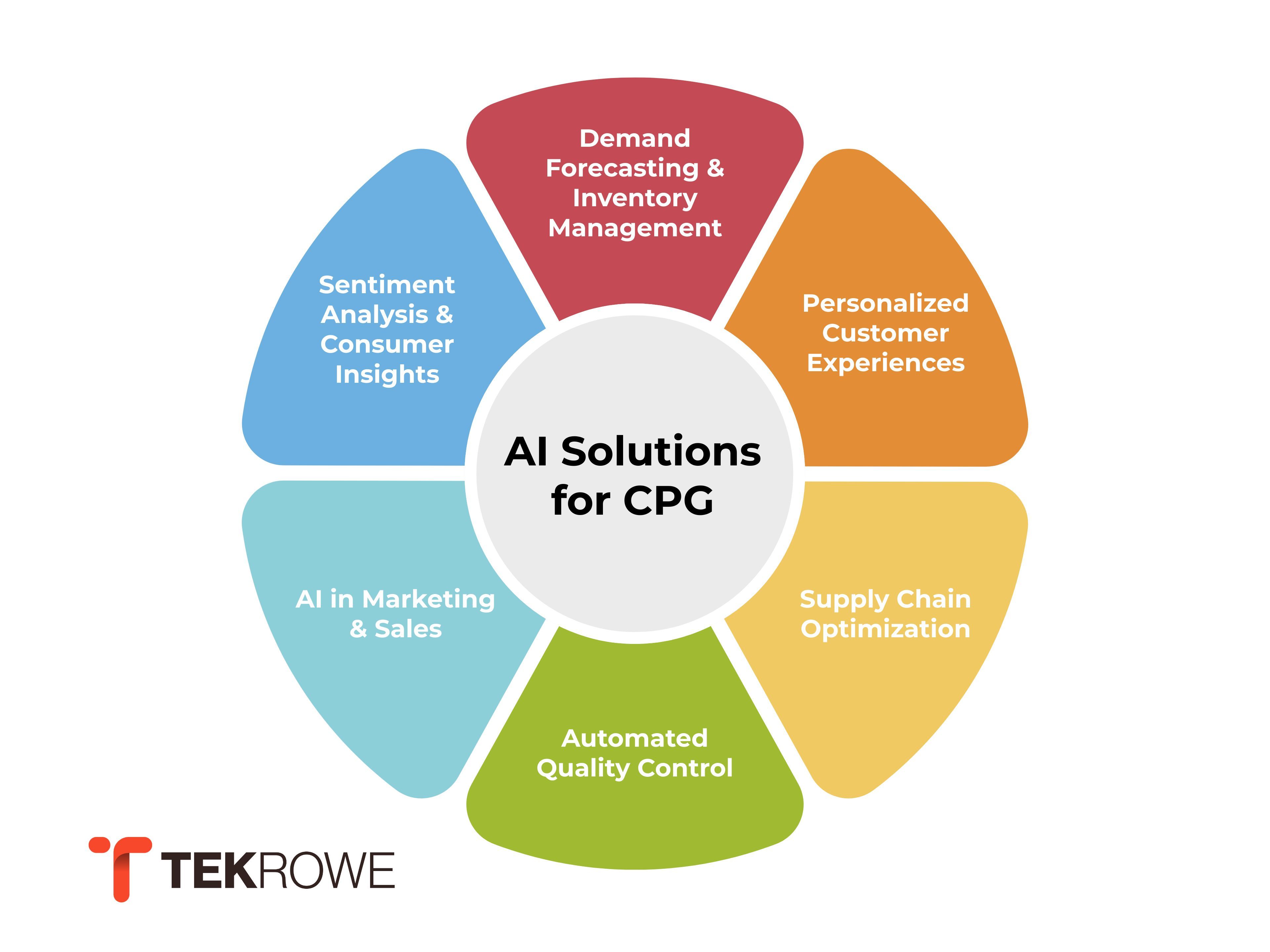
Sentiment Analysis
AI also helps companies understand how consumers feel about their products by analyzing social media posts, reviews, and surveys. This sentiment analysis can help brands respond more effectively to consumer needs. For example, if a particular product is receiving negative feedback, AI can quickly flag this for the company, allowing them to take corrective action before the issue becomes widespread.
Challenges of Implementing AI in CPG
Data Privacy Concerns
One of the main challenges in implementing AI is data privacy. Consumers are more conscious than ever about how their data is used, and companies need to ensure that they are handling data ethically and transparently. Regulations such as GDPR have made data privacy a top priority, and companies must ensure that they are in compliance to avoid hefty fines and maintain consumer trust.
High Initial Investment
Implementing AI solutions can be costly. The initial investment in AI technology and training can be high, which may be a barrier for smaller CPG companies. However, the long-term benefits, such as improved efficiency and increased sales, often outweigh these initial costs, making AI a worthwhile investment for many companies.
Need Help with Your Business
Contact Us NowBenefits of AI in Retail and CPG
Increased Sales
AI helps companies understand what their customers want, which leads to more successful product launches and higher sales. It’s like having a crystal ball that shows you what consumers will buy next. By predicting trends and understanding consumer preferences, companies can create products that are more likely to succeed in the market, leading to higher revenues and growth.
Better Customer Retention
By providing personalized experiences and excellent customer service, AI can improve customer retention. Loyal customers are the backbone of any successful CPG brand, and AI helps keep them coming back. By analyzing customer behavior, AI can predict when a customer is at risk of switching to a competitor and take proactive steps to retain them, such as offering personalized discounts or special promotions.
Future of AI in the CPG Industry
Emerging Trends in AI for CPG
The future of AI in the CPG industry looks bright. From AI-driven sustainability efforts to more immersive customer experiences through augmented reality, there are many exciting developments on the horizon. AI will continue to evolve, offering even more advanced tools for product development, consumer engagement, and operational efficiency. The use of AI in enhancing sustainability efforts, such as reducing waste and optimizing resource use, is also expected to grow.
The Role of Ethical AI
As AI becomes more integrated into business processes, ethical considerations are also gaining importance. Companies must ensure that their AI systems are fair, transparent, and do not discriminate against any group of consumers. Ethical AI practices will not only help companies avoid legal troubles but will also build trust with consumers, who are becoming more aware of how their data is used.
AI Tools and Technologies for CPG
Machine Learning
Machine learning is the backbone of AI in the CPG industry. It allows companies to predict consumer behavior, optimize inventory, and streamline their supply chains. Machine learning algorithms can learn from past data to make predictions about future outcomes, such as which products will be in high demand or which marketing strategies will be most effective.
Natural Language Processing (NLP)
NLP is another critical AI technology for CPG companies. It powers chatbots, enables sentiment analysis, and helps companies understand what consumers are saying about their products in real-time. NLP allows brands to analyze unstructured data, such as social media posts and product reviews, providing valuable insights into consumer sentiment and preferences.
Steps to Implement AI in Your CPG Business
Assessing Business Needs
Before jumping into AI, it’s essential to assess your business needs. Understanding where AI can provide the most value will help ensure a successful implementation. Whether it’s improving supply chain efficiency, enhancing product personalization, or automating customer service, having clear objectives is key to realizing the benefits of AI.
Choosing the Right AI Solutions
Not all AI solutions are created equal. Choosing the right technology for your business will depend on your specific goals, whether it’s improving supply chain efficiency or enhancing customer personalization. Working with experienced AI vendors and ensuring that the technology integrates well with your existing systems are also critical steps in the implementation process.
Conclusion
AI is transforming the Consumer Packaged Goods industry in a big way. From improving supply chains to creating personalized consumer experiences, AI is helping CPG companies stay ahead of the competition and meet consumer demands more effectively. While challenges like data privacy and high initial investment exist, the benefits of AI—such as increased efficiency, better sales forecasting, and enhanced customer retention—make it an invaluable tool for the CPG industry.
As AI continues to evolve, the CPG industry will see even more innovative applications, making it essential for businesses to adapt and integrate AI into their strategies. The companies that do so effectively will be the ones that lead the market in the coming years. With AI at their side, CPG brands are poised not only to meet consumer needs but to anticipate them, creating products and experiences that truly resonate and foster lasting loyalty.

